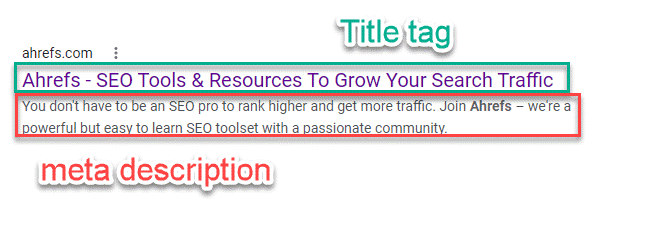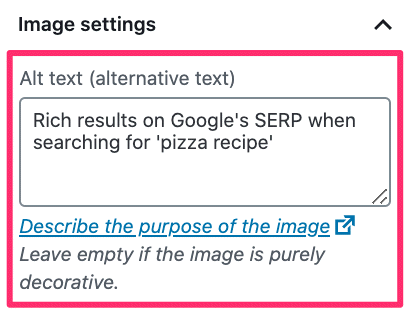The SEO for beginners guide, ultimate thread.
- What is SEO in 2021
- On-site SEO
- Content ideation + creation
- Backlinks
- SEO Myths
Bookmark this to get started with #SEO and drive real organic searchers to your site
- What is SEO in 2021
- On-site SEO
- Content ideation + creation
- Backlinks
- SEO Myths
Bookmark this to get started with #SEO and drive real organic searchers to your site

 What is SEO in 2021?
What is SEO in 2021? SEO = search engine optimization.
In other words, getting your site to show up when people search for something.
Example: If you sell a writing course, your goal is to show up for searches related to writing as a broad niche.
Read on to learn how.
SEO is about value & trust:
- Helpful up-to-date content that answers search query
- Good content and site structure
- Mentions from other websites (backlinks)
- Fast & easy to use website
- Topical expertise
Do these and you are positioned to rank well for searches.
- Helpful up-to-date content that answers search query
- Good content and site structure
- Mentions from other websites (backlinks)
- Fast & easy to use website
- Topical expertise
Do these and you are positioned to rank well for searches.
 On-Site SEO simplified
On-Site SEO simplifiedOn-site, or on-page SEO is:
- Publishing good content
and then optimizing said content for:
- HTML tags (title, meta, headers)
- Images
- URL structure
- Schema
- Mobile + desktop page speed
- Internal links
Let's dive in

HTML tags for SEO.
Title tags should contain primary keyword with a compelling headline that makes people click.
Meta description:
The same. Keyword naturally placed in compelling description.
These aren't direct ranking factors, you're optimizing for users to click!
Title tags should contain primary keyword with a compelling headline that makes people click.
Meta description:
The same. Keyword naturally placed in compelling description.
These aren't direct ranking factors, you're optimizing for users to click!
Images for SEO:
Include helpful images (not stock photos) in your content.
Screenshots, examples, infographics, charts, data.
Utilize alt text for them:
a few words describing the image relating to your target topic that search engines can read.
Include helpful images (not stock photos) in your content.
Screenshots, examples, infographics, charts, data.
Utilize alt text for them:
a few words describing the image relating to your target topic that search engines can read.
URL structure for SEO:
Ideally, you want your target keyword in the URL structure:
https:// yoursite . com / target-keyword-etc
Not a ranking factor, but very helpful for searchers who will see your URL string before clicking.
Ideally, you want your target keyword in the URL structure:
https:// yoursite . com / target-keyword-etc
Not a ranking factor, but very helpful for searchers who will see your URL string before clicking.
Mobile + desktop site speed for SEO:
You want a fast site. <3s load from first click is optimal.
Utilize Google's PageSpeed Insight tool.
Biggest speed hacks:
- compress images
- lazy loading
- minimize redirects
- caching
More here:
https://developers.google.com/speed/pagespeed/insights/
You want a fast site. <3s load from first click is optimal.
Utilize Google's PageSpeed Insight tool.
Biggest speed hacks:
- compress images
- lazy loading
- minimize redirects
- caching
More here:
https://developers.google.com/speed/pagespeed/insights/
Internal Links for SEO:
Point users on your site to more relevant pages on your site.
This (1) keeps them on your site and (2) passes authority from page to page to increase ranking potential.
I have a whole thread here on that: https://twitter.com/jmoserr/status/1353749381539721217?s=20
Point users on your site to more relevant pages on your site.
This (1) keeps them on your site and (2) passes authority from page to page to increase ranking potential.
I have a whole thread here on that: https://twitter.com/jmoserr/status/1353749381539721217?s=20
 Content ideation + creation for SEO
Content ideation + creation for SEOCreating and publishing content on your website is critical to driving more organic traffic.
Don't blog to blog. Write mostly long-form content that wholly covers a subject from start to finish.
This builds trust, value, and authority.
Step 1. Keyword research for SEO
I use @ahrefs. You can use others, too.
Find relevant keywords to your business or niche with a moderate difficulty (<30 on @ahrefs).
You will likely be able to rank for these faster.
Focus on mid-to-long-tail searches.
I use @ahrefs. You can use others, too.
Find relevant keywords to your business or niche with a moderate difficulty (<30 on @ahrefs).
You will likely be able to rank for these faster.
Focus on mid-to-long-tail searches.
Step 2. Create great content
- Cover related topics, not just main keyword
- Analyze current content for that search, and improve on what exists
- Images, video, audio
- Quality writing, no fluff, all actionable ideas and tips
Then, optimize on-page factors.
Step 3. Repeat
- Cover related topics, not just main keyword
- Analyze current content for that search, and improve on what exists
- Images, video, audio
- Quality writing, no fluff, all actionable ideas and tips
Then, optimize on-page factors.
Step 3. Repeat
 Backlinks for SEO
Backlinks for SEOBacklinks are when other websites point a link to your website from theirs.
I.e, Forbes links to your blog post.
These are valuable trust and authority-passing signals, and have high impact on ranking ability.
You want backlinks from reputable sites.
How do you earn backlinks from good sites?
- HARO (pitch journalists)
- Network with bloggers
- Connect in Slack groups with site owners
- Guest post
- Mention experts, they might link back to it
- Custom images, quizzes, templates people can reference
- Publish unique pieces
- HARO (pitch journalists)
- Network with bloggers
- Connect in Slack groups with site owners
- Guest post
- Mention experts, they might link back to it
- Custom images, quizzes, templates people can reference
- Publish unique pieces
 SEO myths we need to bury:
SEO myths we need to bury:- SEO is dead
As long as seach engines exist and people utilize them to find things, it's alive and well.
- Backlinks are shady
Spammy ones are. Good ones aren't, and are actually needed in any competitive industry as valuable trust signals.
- SEO takes years to "work"
Wrong. It may take years to rank #1 for some keywords, sure.
But you can bring in organic traffic in just a few weeks of publishing content.
Stop waiting. The longer you wait, the longer it takes to build organic momentum.
Wrong. It may take years to rank #1 for some keywords, sure.
But you can bring in organic traffic in just a few weeks of publishing content.
Stop waiting. The longer you wait, the longer it takes to build organic momentum.
Did you like this thread?
Join my bi-weekly newsletter on Practical SEO tips.
No fluff. No cost. No spam. Just actionable SEO advice you can actually implement. https://www.getrevue.co/profile/jmoser
Join my bi-weekly newsletter on Practical SEO tips.
No fluff. No cost. No spam. Just actionable SEO advice you can actually implement. https://www.getrevue.co/profile/jmoser

 Read on Twitter
Read on Twitter




